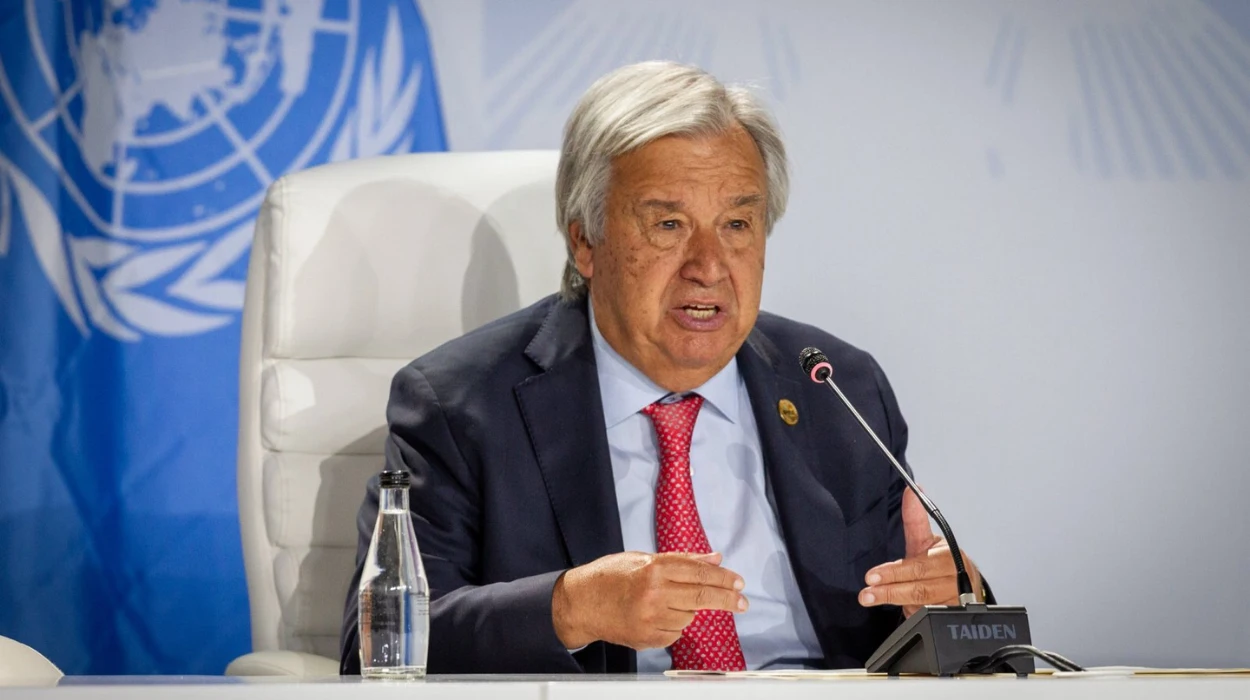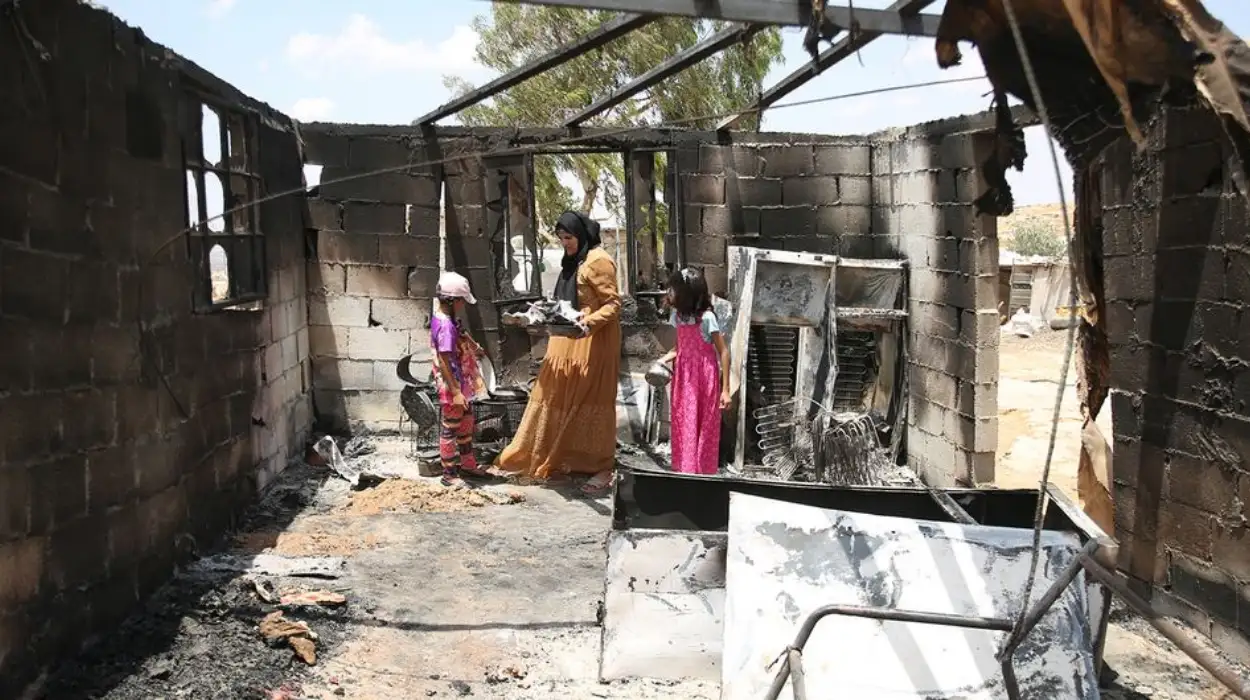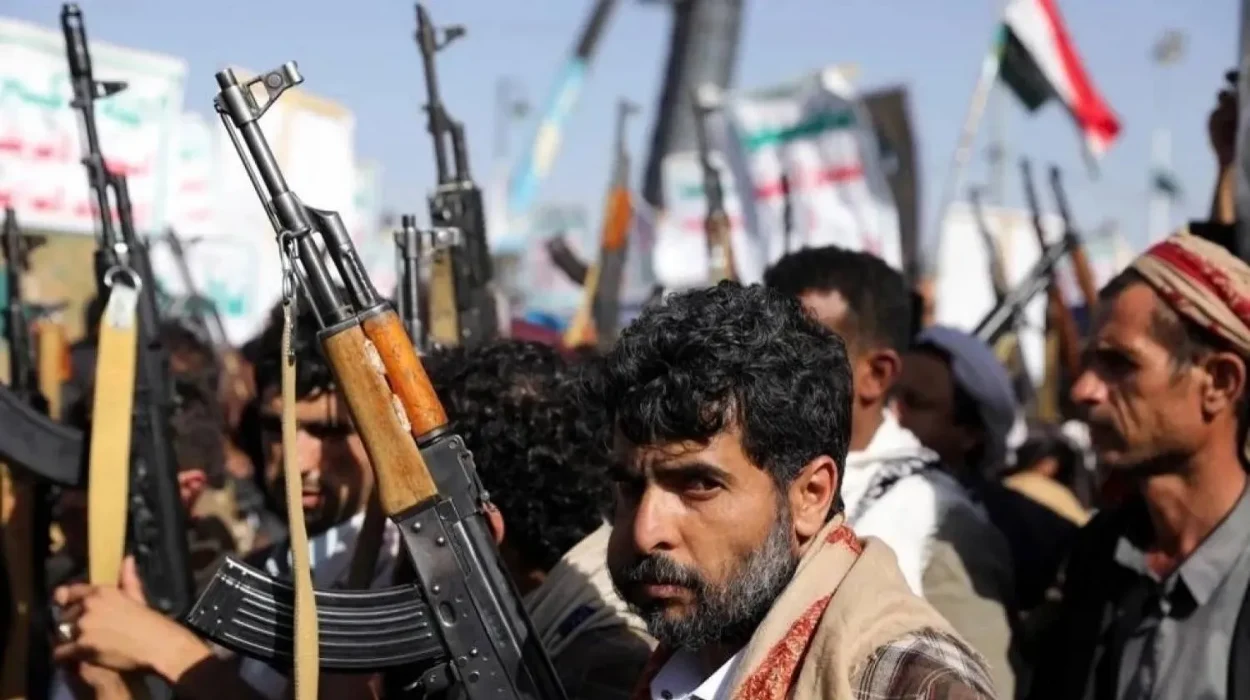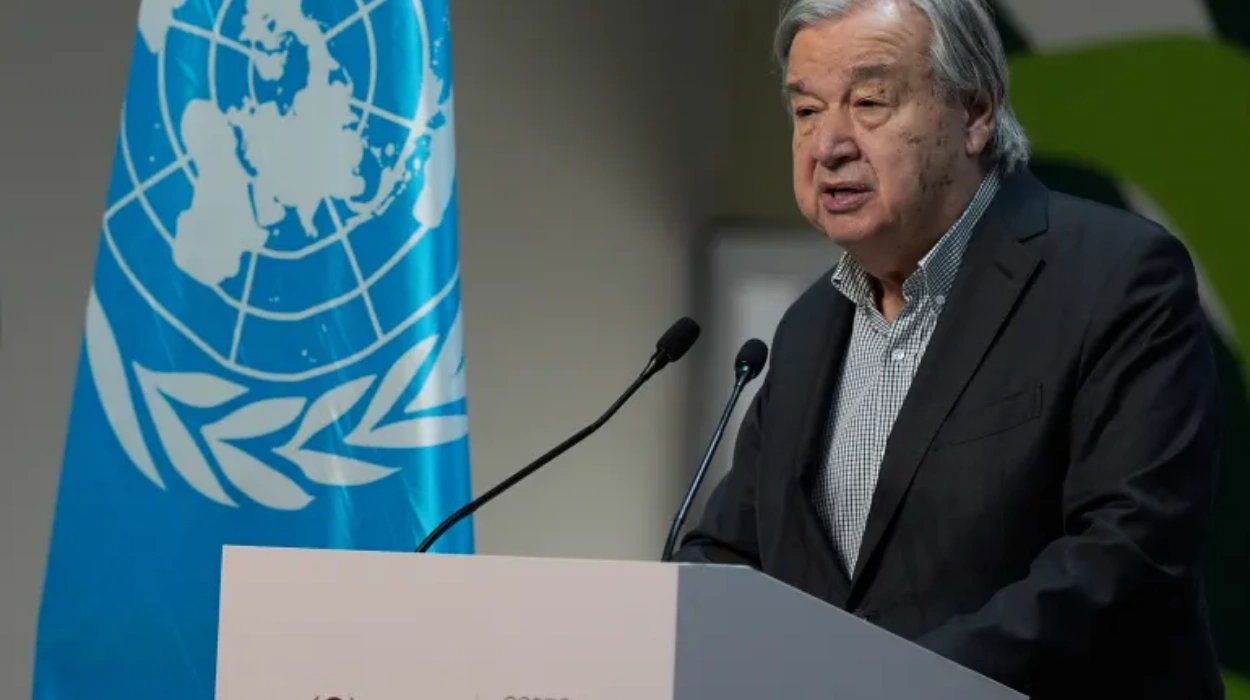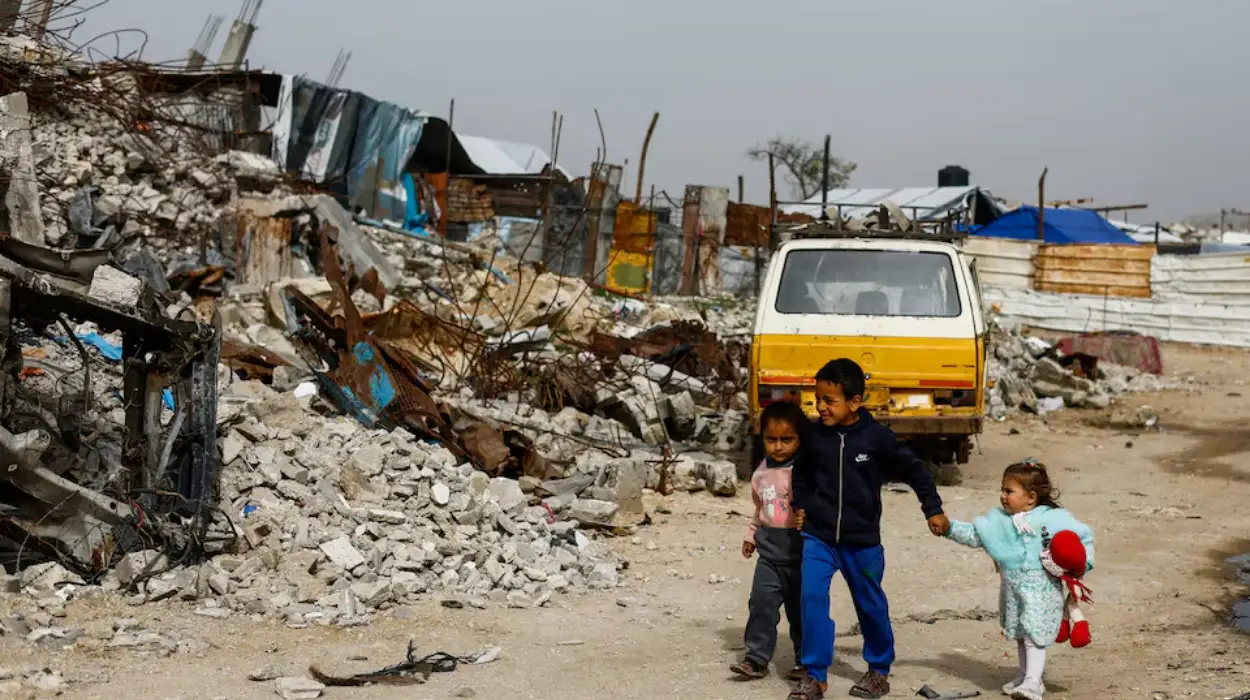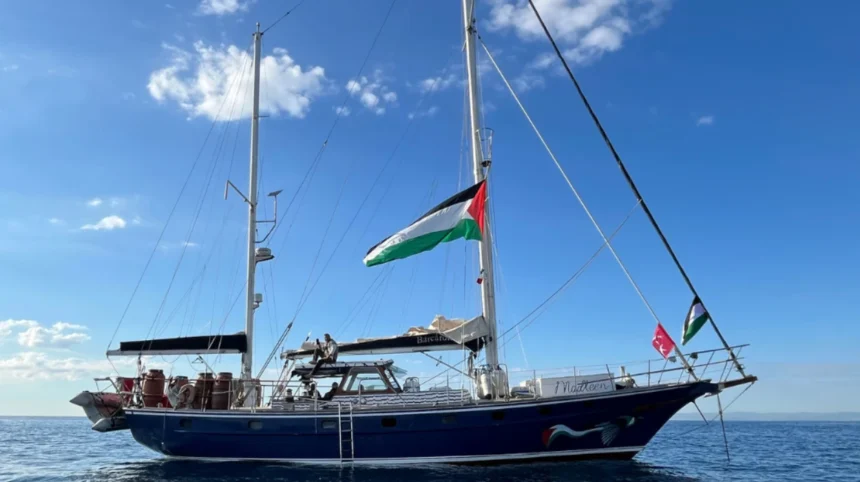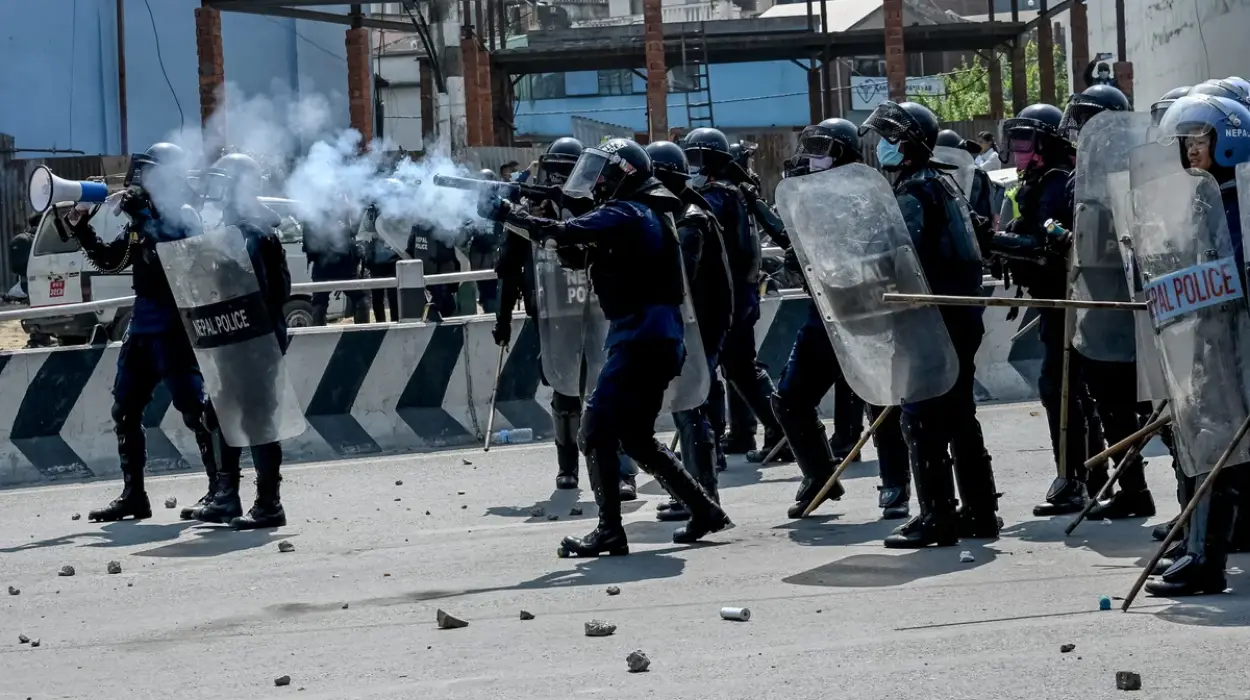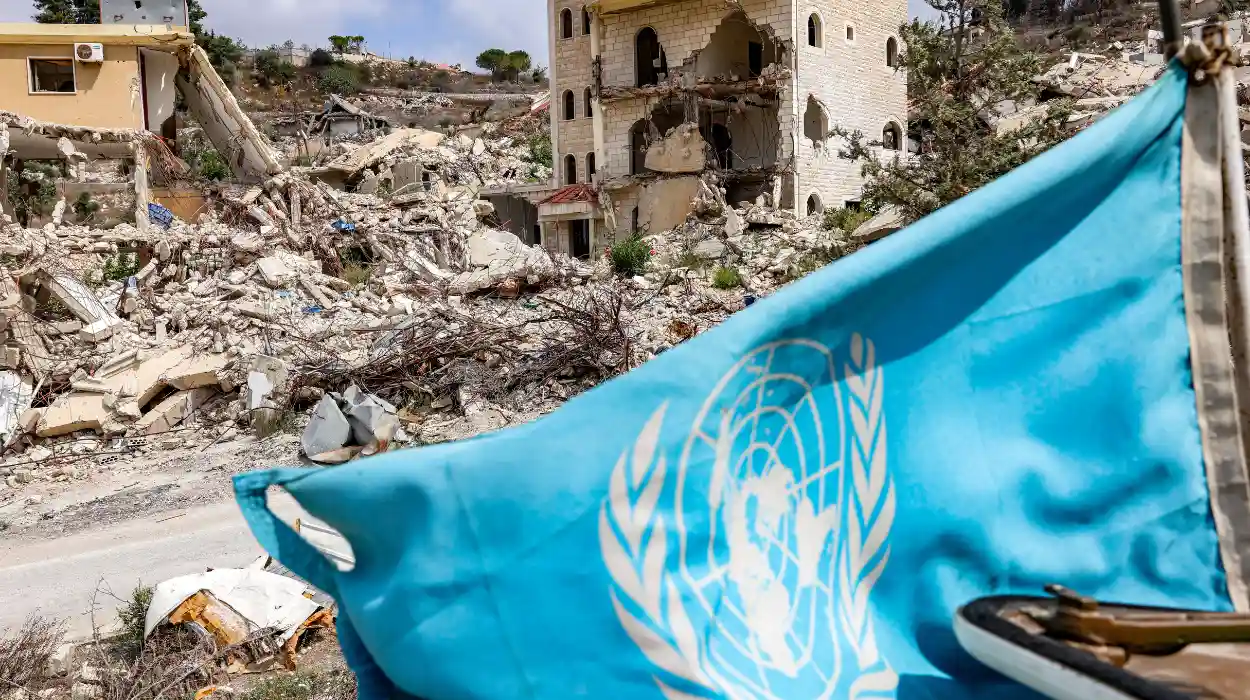The Global Sumud Flotilla (GSF) is an unprecedented multinational humanitarian and political initiative to pressure the Israeli naval blockade of the Gaza Strip. It is the biggest staged civilian convoy to date of hundreds of participants who are meant to deliver aid directly to Gaza with more than 50 boats of participants representing 44 countries. With almost 300 tons of essential cargo in the form of food, water and medical supplies, it indicates a new international mobilization that is based on civil society.
Coordination of the initiative is through a grouping of coalitions such as Global Movement to Gaza (GMTG), Freedom Flotilla Coalition (FFC), Maghreb Sumud Flotilla, and Sumud Nusantara. This is a coalition that also underscoring the exceptional degree of global collaboration with actors across the globe with medical staff, lawyers, activists, artists, elected officials all eager to take part in a non-violent intervention they consider an unlawful siege and humanitarian disaster.
Diversity And Scale Of The Mission
The very geographical distance between the participants of the flotilla in Brazil and South Africa, Indonesia and Norway indicates the changing of the perception of the plight of Gaza outside of the localized context. The GSF is formally composed, unlike the situation in aid missions that were in the past, which was frequently siloed or state connected. It instead prefigures human rights and nonviolent resistance as the values of its guidance.
Sumud Arabic to be steadfast is not only a symbolic allusion, but also a fundamental idea of the flotilla. The claim of the organizers is that tackling structural injustice needs to involve long-term global involvement and community-level solidarity. The motley makeup of the convoy implies an insistence on raising up voices of the marginalized as part of a campaign that is both humanitarian emergency and moral challenge.
Challenges On The Voyage
The flotilla has undergone a lot of logistical and security setbacks despite its peaceful mission. The convoy led by the Spaniards first retreated because of the tough weather in the Mediterranean. A Malaysian convoy was on the way. Most importantly, on September 9 the flagship of the flotilla, the Portuguese flagged “Family Boat,” was gutted in the docks of Tunis. It was reported by organizers that it could have been the target of an incendiary drone, but Tunisian officials claimed the fire was due to an internal technical failure, and not as a result of an external attack.
No matter what the reason is, the incident depicts the complicated and even dangerous nature in which the flotilla is functioning. In addition to the disputed accounts of humanitarian access to Gaza, accusations of sabotage and denial by authorities further show the risky circumstances activists must work in politically charged grounds.
Gaza’s Crisis And The Blockade Context
The flotilla needs to be put into context within the wider humanitarian catastrophe in Gaza which has instead been increased by new military action. The naval blockade by Israel, which began in 2007 has always been defended on reasons of security, but of late, it is perceived by global observers as collective punishment.
The latest exacerbation, since October 2023, has aggravated the isolation of Gaza with alleged more than 64,000 Palestinian fatalities, most of whom are civilians. Food insecurity has become a catastrophe and there have been credible reports of deaths in food distribution lines. Infrastructure in medicine has failed. To a great number of the participants of the flotilla, the sea operation is neither only delivery of supplies, but a form of demonstration against forced starvation and systematic dehumanization.
Humanitarian Catastrophe And Blockade Realities
The Israeli blockade is drastically limiting the flow of basic commodities, notably medicine, clean water and building material. The worsening conditions have been raised a number of times by humanitarian organizations as unsustainable, through the international standards of law, where the targeting of civilian populations in the armed conflict is outlawed.
The agencies of the UN, such as World Health Organization and the OCHA have issued warnings of imminent famine and termed the situation as unprecedented in magnitude. It is designed with the purpose of discontinuing this isolation, both physically and symbolically, by declaring the entitlement of the international community to intervene in humanitarian crises when state actors have neglected or been involved in their propagation.
International Legal And Ethical Dimensions
Organizers claim that the blockade is an infringement of various provisions of international humanitarian law such as the Geneva Conventions. The trip of the flotilla is, thus, a literal test of not just geographic boundaries but also of legal and moral structures that enabled the siege to continue.
The validity of the mission is supported by UN special rapporteurs which has urged all parties to make its participants safe. Remembering the events of the past most notably the 2010 misdemeanor of the Mavi Marmara, when 10 nonviolent humanitarian activists were killed, these professionals remind about the extreme necessity to protect civilians participating in nonviolent humanitarian activities. Legal arguments put forward by GSF participants are based on the legal principle of international responsibility to protect (R2P), particularly when barriers that state imposes infringe on rights to life and dignity.
Geopolitical Implications And International Responses
Not only has the Global Sumud Flotilla brought back the argument on Gaza, but it has also exposed the rifts in international reactions to humanitarian activism. Some leaders show solidarity but others look at the mission with hostility or strategic reserve revealing the tension latent in international diplomacy on Palestine.
Divergent Global Positions
Governments of the Global South, such as Colombia and Malaysia, have come out clearly to support the flotilla. Colombian President Gustavo Petro publicly supported the mission, and made a moral imperative of it. On the other hand, Israeli officials have declared flotilla participants as security risks and have increased naval surveillance measures and threatened not to allow them entry to the coastal waters of Gaza.
In internal divisions, the European Union Commission has discouraged the support of maritime missions to Gaza on the basis that such missions would contribute to more tensions in the region. Such a standpoint is indicative of the longstanding quandary of multilateral organizations: whether to support humanitarian access or adhere to alliance-specific political limitations.
Impact On Public Awareness And Activism
In addition to direct delivery of relief, the flotilla has triggered a new wave of publicity on the crisis in Gaza. Protests in more than 20 cities such as London, Johannesburg, and Buenos Aires have been held demanding the removal of the blockade. In solidarity with the flotilla, port unions in Genoa and Barcelona have vowed to stop the supply of weapons shipments to Israel.
This individual has commented on the subject, noting how the mission is a means of worldwide awareness and civilian mobilization to protect humanitarian rights:
The statement highlights the symbolic force of the flotilla as an instrument not only of providing humanitarian aid but of creating the collective awareness around one of the most long-standing and complicated conflicts of the modern times.
Reframing Humanitarianism And Resistance
The Global Sumud Flotilla challenges conventional notions of humanitarian intervention by framing maritime resistance as both a logistical operation and a political statement. Its planners reject the dichotomy between activism and aid, asserting that addressing human suffering in Gaza requires confronting the structural conditions that produce it.
While critics argue that such missions blur lines between humanitarian work and political provocation, supporters contend that neutrality has often been used as a pretext for inaction. The flotilla seeks to redefine humanitarian engagement in an age where traditional institutions have been unable or unwilling to secure meaningful relief for besieged populations.
By asserting the right of civilians to deliver aid and witness suffering firsthand, the flotilla defies geopolitical passivity and reclaims agency for global civil society. As such, it raises critical questions about sovereignty, legality, and moral obligation in a time of rising authoritarianism and conflict-driven displacement.
The Global Sumud Flotilla illustrates how nonviolent civil resistance can operate within transnational frameworks to confront entrenched power and narrative control. As the boats continue their journey toward Gaza, they carry not just supplies, but the aspirations of a growing global movement committed to justice, dignity, and human survival in the face of systematic deprivation. Whether the mission succeeds in breaching the blockade or not, it has already reshaped the conversation around Gaza—pulling it back from abstraction and into a collective moral reckoning that the international community can no longer afford to ignore.


